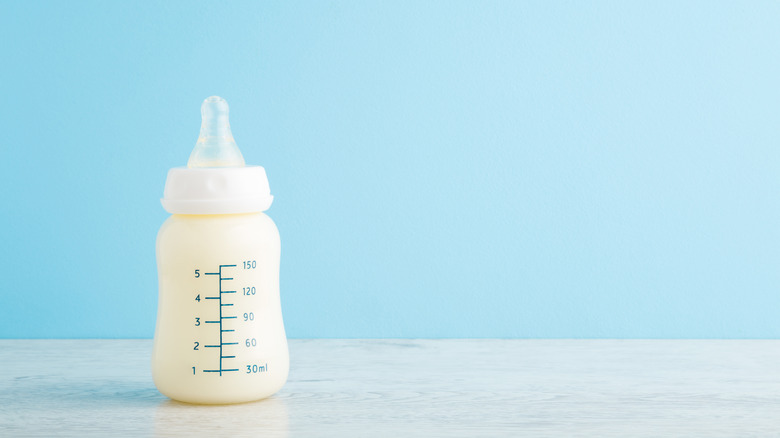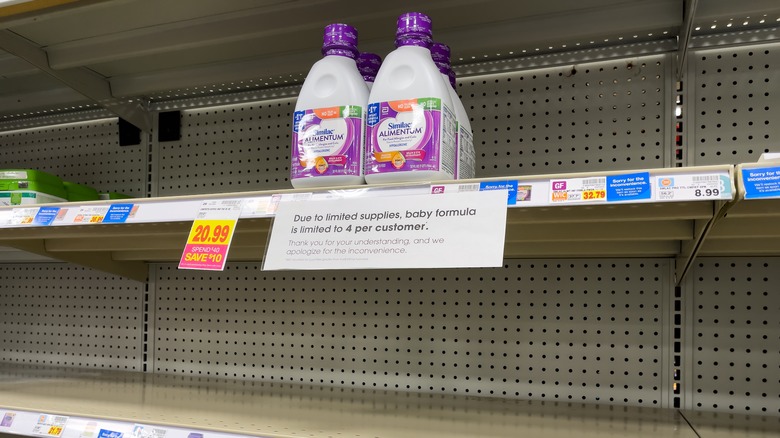Baby Formula Shipment Arrives In The US To Address Nationwide Shortage
A shipment of baby formula arrived in the U.S. from Europe on Sunday to address the nationwide formula shortage. The shipment contained the equivalent of about 500,000 eight-ounce bottles worth of hypoallergenic baby formula for infants with cow's milk protein allergy (via New York Times). According to White House officials, this should provide enough formula to feed 9,000 babies and 18,000 toddlers for a week.
In a statement on Twitter, agriculture secretary Tom Vilsack, who greeted the arrival of a military plane carrying the formula in Indianapolis, said that "The shipment of formula serves a critical medical purpose and will help infants with specific dietary needs requiring specialized formula." This comes less than a week after President Joe Biden invoked the Defense Production Act to increase the production of infant formula, and launched "Operation Fly Formula" to authorize the use of military planes to speed up formula shipments from overseas.
More shipments will arrive later this week
According to CNN, the first shipment will be inspected at a Nestlé distribution center and distributed to hospitals, doctor's offices, pharmacies, and home health care facilities in areas of high need. These are the places to which families are currently turning when they can't find the type of formula they need.
However, more shipments are expected to arrive later this week, significantly increasing the supply of formula in the U.S. White House officials have already confirmed that the total amount of formula set to be distributed under "Operation Fly Formula" will be enough to fill 1.5 million eight-ounce baby bottles. As for when we can expect grocery store shelves to be full again, Vilsack has said, "I think that's a matter of weeks" (per New York Times).
For now, however, CNN notes that the first shipment was given a spot check by inspectors from the U.S. Food and Drug Administration (FDA) to make sure the product was undamaged, and will now undergo a quality check by Nestlé before being distributed to health care facilities in regions of the country with the highest need.


